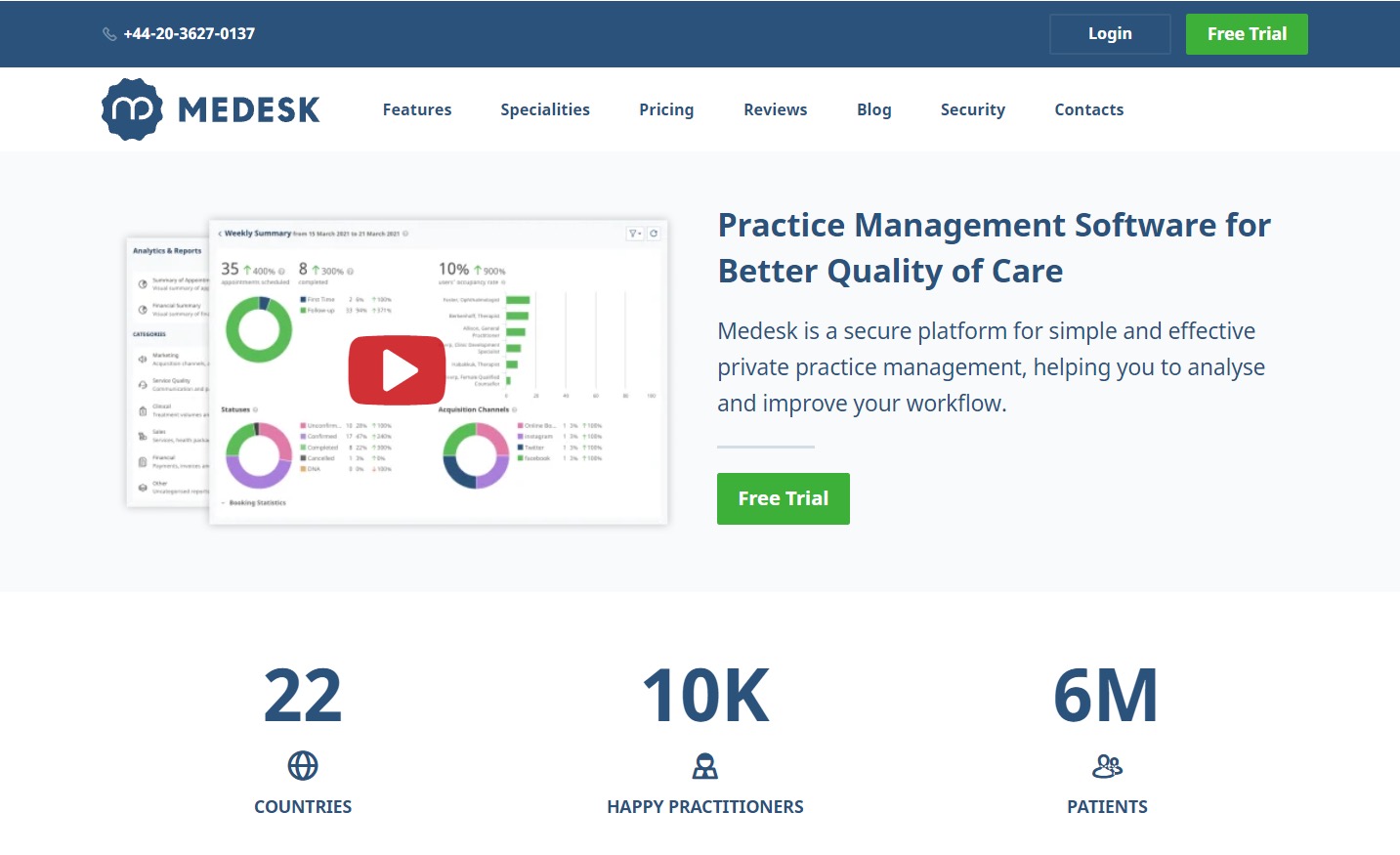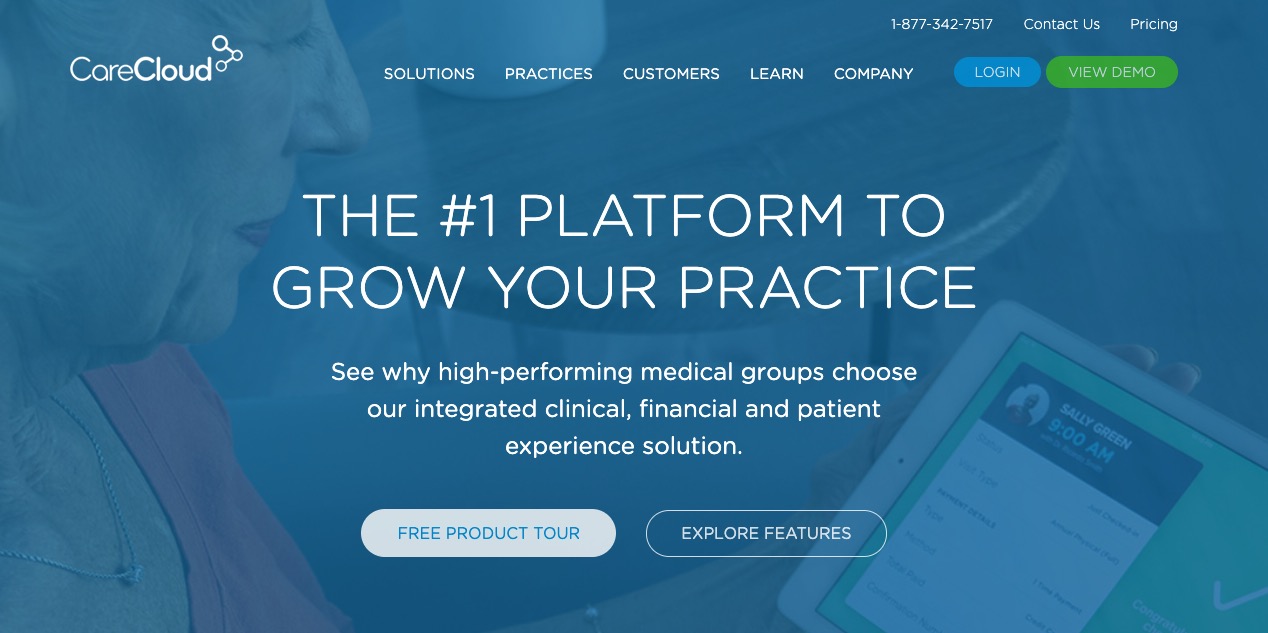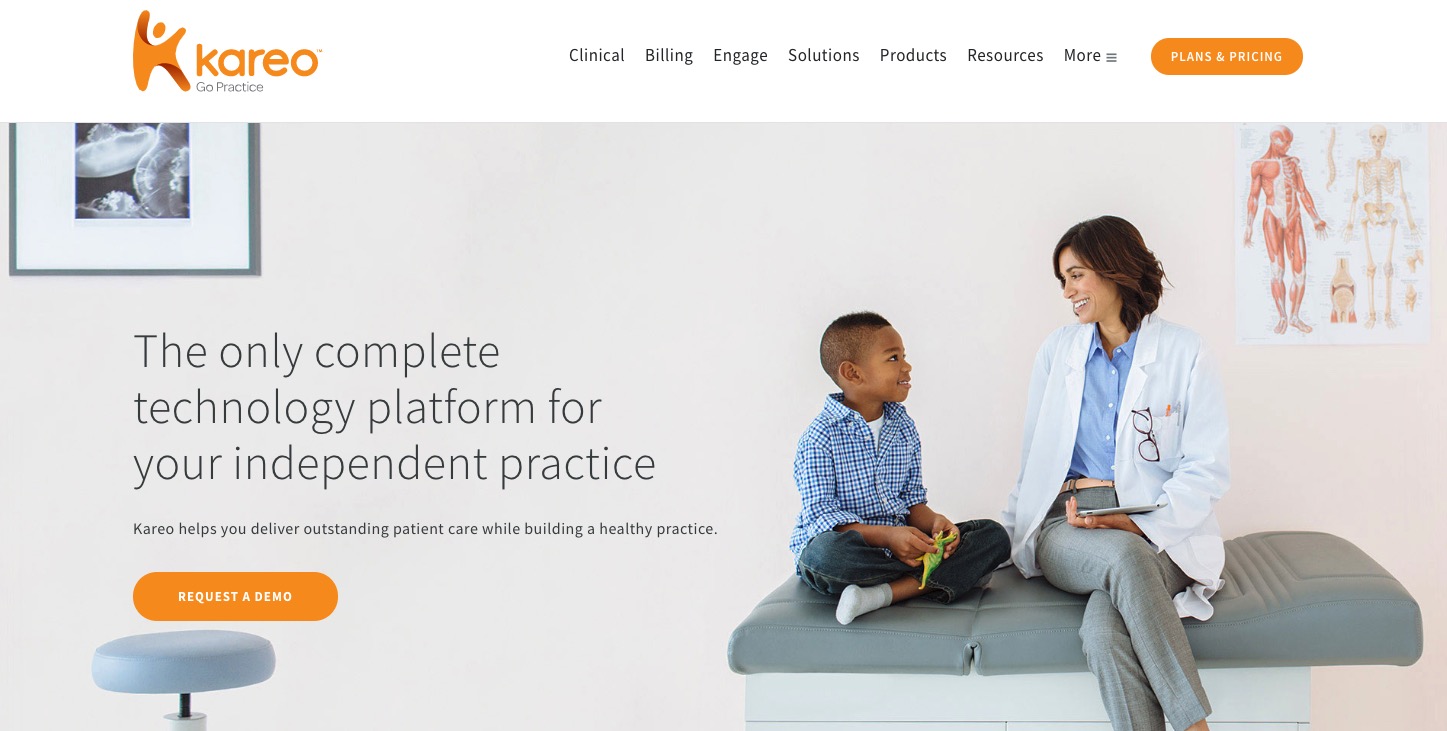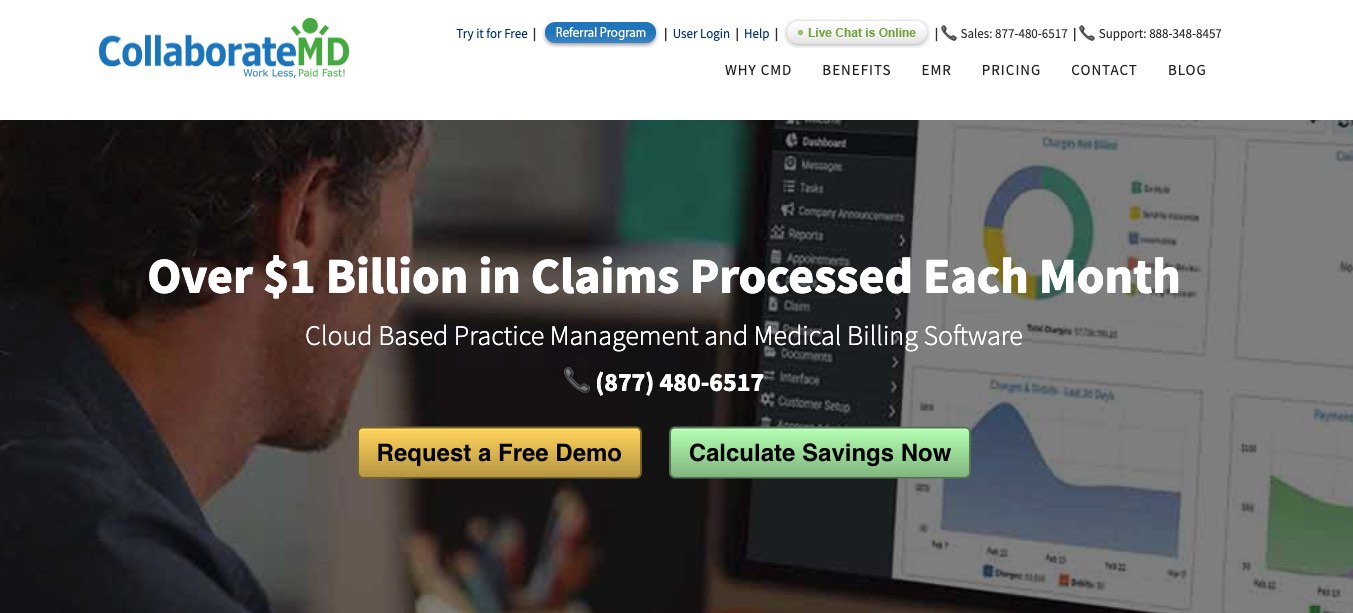Want to start a home-based medical billing business but not sure of the process?
Don’t worry, we’ve got you covered.
There are numerous benefits to running your own home-based business. Working in comfort, building your schedule, being your boss, ditching the daily commute; the list goes on.
However, before investing money, effort, and time into establishing a medical billing business, you should determine if coding and billing is a good fit for you. It takes a lot to get up and running, including a rigorous certification course.
Rest assured, however, the returns of a well-run medical billing business are fantastic. With independence and a steady income, you’ll have a healthier work-life balance and the ability to decide how large you want your company to grow.
Table of Contents
- What is a medical billing business?
- Is a home-run medical billing business right for you?
- Is there a need for your service?
- What are the startup costs involved?
- A. First steps to starting your own medical billing business
- B. What you need to get up and running
- C. Choosing a billing software
- D. How to charge clients
- E. Income potential
- F. Specialize yourself
- G. Construct a strong marketing plan
- H. Network & grow
- I. Bonus: An alternative business opportunity
Ready to get started? Let’s go!
What is a medical billing business?
Medical centers, hospitals, and private care professionals bill patients for appointments and services. These services can include check-ups, procedures, testing, treatments, and so on.
Medical coding and billing businesses translate these patient services into a bill, and then send and follow up on such medical claims with insurance companies.
Why do doctors and healthcare providers use outsourced billing methods in their revenue cycle management procedures?
Health insurance companies, Medicare, and Medicaid require billing departments to process medical bills through extensive software under strict rules and provisions.
These rules state that billers and coders submit claims with a series of particular codes specific to the medical procedure performed by the health provider. This makes the medical claims billing process far more streamlined and organized.
However, that isn’t all.
Revenue Cycle Management is the administration of medical financial transactions resulting from patient-provider encounters. These transactions include:
- Billing
- Collections
- Payer contracting
- Provider enrollment
- Coding
- Data analytics
- Management
- Compliance
Medical billers and coders play a significant role in carrying out these revenue cycle procedures. They follow the patient’s payment actions from the initial appointment or interaction with a medical provider to the final payment of the bill.
Billers and coding specialists help doctors earn revenue promptly through their coding and billing abilities and extensive knowledge of the requirements of insurance companies.
Through patient medical records and medical reports, billers and coding specialists can create and process accurate bills far quicker than health professionals.
Faster processing means more cash flow and decreased accounts receivables for care providers.
Is a home-run medical billing business right for you?
Running any business requires:
- Self-drive
- Dedication
- Organization
- Focus
- Time
- Data entry skills
- Management skills
If you want to run a successful medical billing service from home, nurture these qualities and skills within yourself.
If this is the first time you are starting a new business, check out our 10 entrepreneurial skills you need.
Next, determine if the healthcare industry interests you.
- Would you enjoy going through medical records and generating claims codes?
- Would you like working with both care providers and insurance companies to receive payment for services rendered?
- Would rejected claims and complications frustrate you? What about uncollectibles?
- Do you have an interest in learning more about medical procedures?
- Did you enjoy working in the medical field in the past?
The medical billing process in the United States can be very complicated. Be sure that you have a passion for the work.
Is there a need for your service?
Before putting time and money in your home business, first research if there is a need for third-party billing in your area.
Contact doctors and healthcare providers and ask them these questions:
- Does an outside company handle your billing or do you do it yourself?
- What software programs do you use/recommend?
- If you use an outside provider, what processes do you outsource?
- How many patients do you see and bill daily?
Tip – Nursing homes and hospitals also use medical billing services and can be a lucrative area of specialization.
The questions listed above will:
- Provide a clear idea of the need for your services in the area
- Give you tips on which software is the best
- Indicate what volume of claims you can expect from your prospective clients.
What are the startup costs involved?

Fortunately, a solo-run medical billing business is easy to start and requires a minimal investment of money. Startup costs typically range between $2,000-$10,000.
Running a home-based small business lets you avoid overheads like renting out an office space and hiring and training employees.
The most expensive cost in starting your billing service is billing software. Prices can range from $100 to $10,000 based on the size of the company, the number of employees, the number of providers, and software features.
You will also need office supplies, including:
- A reliable computer ($500 – $3000)
- A printer and fax machine ($150+)
- Software licensing ($1500-$3500 per user)
Other costs you may need to consider are:
- Software upgrades ($500-$3500 per year)
- Backup hard drives ($50-$150 per drive)
- Ethernet switches and wires ($50-$100 per wire)
- IT support ($100+ per hour)
If you grow your business into a medium/large company, professional, in-house systems are required and can cost up to $50,000 to purchase and install. Servers will further cost another $3,000-$5,000, and training can cost $3,000+.
A. First steps to starting your own medical billing business
The multi-step process of starting your own medical billing home business can be extensive. We advise that you follow each step thoroughly and obtain every license and certificate required to be in legal standing and risk no chance of being shut down.
Here’s how to start.
1. Get hands-on experience in a medical role
If you are new to the medical industry, it is highly beneficial to work in the medical field for at least a few months before starting your business.
A great way to do this is by working in the billing department of a medical office or a hospital. You will experience the medical industry and billing process first hand, and will also gain an improved understanding of the average volume of patients that visit doctors daily.
A bonus?
Working in a doctor’s office will help you network and source potential clients for your business. You will handle a variety of medical records and insurance claims, and may even get to learn the electronic billing process if the practice supports it.
2. Apply for medical billing training
Why do you need medical billing training?
Medical billing differs from other types of invoices for two reasons:
- Medical bills go through an insurer before being sent to a patient.
- Medical bills require highly specialized codes and descriptions when sent to insurers.
Also, many medical procedures have similar names; therefore, billing specialists must have in-depth knowledge about anatomy, physiology, pharmacology, and health insurance terms.
A variety of colleges offer billing certification courses, both online and in-person. The completion of most billing certifications takes 9 to 18 months and requires 18 credits.
The Primary Coding Manuals & Certification Exams
When choosing a certification program, pick a course that includes all necessary code manuals and exam preparations.
Medical billing certificate programs should cover three primary code manuals:
- CPT: Current Procedural Terminology (set by the American Medical Association)
- ICD-10-CM: International Statistical Classification of Diseases and Related Health Problems (Maintained by the World Health Organization)
- HCPCS: Healthcare Common Procedure Coding System
Following the course, you should be prepared to take exams offered by the three medical billing and coding businesses listed below:
- Certified Medical Reimbursement Specialist exam – American Medical Billing Association (AMBA)
- Certified Coding Associate – American Health Information Management Association (AHIMA)
- Certified Professional Coder’s board exam – American Academy of Professional Coder’s (AAPC)
3. Watch out for scams
There are a plethora of medical billing opportunities that aid entrepreneurs in starting their own third-party billing business.
For example, a company may offer to set the entrepreneur up with training, the perfect electronic billing tools, and a list of potential clients that need outsourced billing services.
Sounds too good to be true, right?
Reliable services like this surely exist, however many of them are scams. The Federal Trade Commission has created a guide for how to detect and avoid scams.
It is crucial that you do thorough research on service providers if you choose to take this route.
The FTC suggests that you, “check with the state Attorney General’s office, consumer protection agency and the Better Business Bureau in your area and the area where the promoter is based to learn whether there are any unresolved complaints about the business opportunity or the promoter.”
4. Create a business plan
Determining what kind of business you want to run is the first step in creating an airtight business plan.
Do you want to run a sole proprietorship or a partnership with another person? Will your business be an LLC? Will it be a large corporation?
Meet with a certified public accountant to understand which option suits your personal and tax needs.
Next, ask yourself a few questions:
- Who is your target audience?
- What are the initial costs?
- What kind of income can you expect?
- What is the name of the business?
- What do you need to get started?
5. Other necessities
Here are a few more things you will need to accomplish before starting your medical billing company:
- Apply for a business license
- Register for taxes
- Set up a business bank account
- Set up accounting
- Obtain necessary permits and licenses
- Get business insurance
- Start an LLC. Here are some free guides.
B. What you need to get up and running
Here are the essential items you will need to run a medical billing business smoothly:
1. A clearinghouse
A clearinghouse is a financial institution that processes and facilitates the exchange of payments, securities, or derivatives transactions. In your case, it is a company that electronically receives and transmits medical claims billing.
How much does this service cost?
The cost of a clearinghouse can range from below $100 to several hundred dollars depending on the bells and whistles. Some clearinghouses also demand additional fees for each new medical care provider or account you add.
2. A medical billing software
As mentioned earlier, the most expensive part of setting up your in-house company is medical billing software.
If you want some specific features of your choice and a billing software specifically made for your business, you can get a bespoke medical billing software developed for you.
Otherwise, billing software can range anywhere from a couple of hundred dollars to $10,000. While some are basic, others include features like marketing plans and lead generation.
Fortunately, many software companies provide free trials. Give your top choices a try before investing heavily in the most critical part of your business.
3. Other equipment & forms
There are a few other necessities you will need to have:
- A reliable computer with an internet connection
- A phone, printer, and fax machine
- Medical insurance forms
- Reference books (ICD-10, CPT, and HCPCS Expert 2000 coding books)
- A productive work environment
If you gain a plethora of clients, you can also use invoicing software to remain organized. If you run a high-volume business, electronic billing may be of use to you.
C. Choosing a billing software
As mentioned earlier, medical billing software pricing can vary widely based on software features and the size of your business.
Here are some of the most popular billing software of 2021:
DrChrono

A cloud-based medical practice management system that includes billing features like medical claims processing, claims scrubbing, code & charge entry, health insurance verification, and more.
Pricing:
- Solo Practice: $499 per month
- Mid-Sized: $4,990 per month
- Large Practice: $12,425 per month
Capterra rating: 4/5
Medesk

A cloud-based medical practice management software with built-in billing and EHR capabilities. The billing feature is integrated with Xero accounting software and includes payment processing, invoice generation, claims management, and financial reporting tools.
Pricing:
- Solo Practice: $23 – $93 per month
- Mid-Sized: $102 – $139 per month
- Large Practice: $150 – $270 per month
Capterra rating: 5/5
CareCloud EHR

A cloud-based medical practice management system with an integrated billing app that features claims processing, claims scrubbing, code & charge entry, health insurance verification, invoice history, and more.
Pricing:
- Solo Practice: $349 – $649 per month
- Mid-Sized: $3,490 – $6,290 per month
- Large Practice: $8,725 – $15,725
Capterra rating: 4/5
Kareo EHR

A web and mobile-available software that manages patient billing through cloud technology. Billing features include claims processing & scrubbing, health insurance verification, dunning management, and more.
Pricing:
- Solo Practice: $300 per month
- Mid-Sized: $3,000 per month
- Large Practice: $7,500 per month
Capterra rating: 4/5
CollaborateMD

A simple, efficient, and affordable cloud-based medical practice management and medical billing solution for your third-party billing needs. Billing features include claims processing, claims scrubbing, health insurance verification, remittance advice, and more.
Pricing:
- Solo Practice: $165 – $345 per month
- Mid-Sized: $1,650 – $3,450
- Large Practice: $4,125 – $8,625
Capterra rating: 4/5
Note – Pricing for billers and coders may vary based on the number of users, features, and number of clients.
For more options, check out Capterra’s list of the best medical billing software.
D. How to charge clients
There are a few ways to charge your clients in the medical billing process:
A percentage of collections – The most popular method, as it often lends the highest return and revenue.
A per-claim fee – This method includes charging a set fee for each claim that is submitted, whether paid or unpaid.
An hourly fee – Hourly fees are useful for medical billing businesses that provide complementary services. The current average hourly rate of a medical billing clerk employee in the U.S. is $18/hour. As an independent contractor, you will likely earn more.
The option you choose depends on the healthcare providers you partner with, as well as the billing and medical coding you perform.
Tracking billing hours
If you opt for charging hourly fees, try using Time Doctor to track your working hours.
If you have a team, Time Doctor follows the websites that they visit while clocked-in and will send reminders when it thinks they are visiting a site that is unrelated to work.
E. Income potential
As with all businesses, the income you earn largely depends on the success and size of the company. Whether you earn $20k or $100k per year will depend on the care providers you partner up with, as well as if you specialize yourself and run an efficient business.
F. Specialize yourself

Specializing yourself in one or two fields of healthcare can significantly benefit your knowledge and income in this business.
Why?
For one, you will eliminate the number of billing codes you need to use regularly. More importantly, much of your credibility as a medical billing clerk will depend on your knowledge of the industry and medical services at hand.
The more you speak their language, the more care providers will hire you for outsourced billing. Here are a few areas of specialty to consider:
- Cardiologists
- Veterinarians
- Chiropractors
- Family practitioners
- Dentists
- Psychiatrists
Note – A healthcare provider that charges a high copay doesn’t necessarily mean more income for you. Doctors with a low copay often require a higher patient billing volume to succeed, sending more insurance claims your way.
G. Construct a strong marketing plan
Your business, like all businesses, won’t grow itself.
Medical billing is a heavily saturated industry. You must create a rigorous marketing plan if you want to hit the ground running.
Getting your first client can be the biggest challenge. You have a head start if you have experience in the medical care industry and have maintained positive relations with healthcare providers in the past.
One of the best ways to market yourself in the medical billing industry is through in-person visits where you drop off marketing material and create relationships with providers.
Moreover, creating a website and business cards or vCards for your service, as well as offering incentives will stimulate growth and lead opportunities.
While generating leads, consider providing these free incentives to lure in prospects:
- An analysis of the benefits of outsourcing billing services for their specific medical practice.
- A code review. Analyze which codes are out-of-date or incorrect, and estimate the amount of lost revenue that has resulted from these codes.
- A free claim process and an estimate of the time your services saved them.
- An analysis of their Superbill and accounts receivable, and an estimate of why some of their medical claims are rejected.
- A consultation to evaluate if they comply with HIPAA and OIG.
If you struggle to bag your first client, you can also offer discounts and other incentives for some time. For instance, you could offer twenty percent off for the first month of your services.
Whatever route of marketing you choose to pursue, create a strategic plan ahead of time so that you are ready to go when it’s time to grow your business.
H. Network & grow
Knowing the right people can always help achieve your goals.
What’s more?
Word of mouth referrals and positive personal testimonies are fantastic for your business.
Embed yourself in the network of medical professionals and make a name for your business. Involving yourself can be done through joining professional organizations, getting in touch with your own family’s medical providers, and working in a medical office that allows you to come in contact with a variety of providers.
Expanding your network will increase your chances of obtaining new clients and growing your business.
I. Bonus: An alternative business opportunity
There is an alternative option for starting your own third-party billing business that can be fruitful if done well.
What is it?
Buying an already existing medical business.
Purchasing an already existing billing company can be done privately or through a broker and can help you avoid a few startup fees and client roundups.
Acquiring a successful business can also lead to high returns with less initial work.
However, before acquiring an already-existing business, ask a few critical questions:
- How many clients does the company have?
- How long have they been customers?
- Are they under contract?
- What method of payment do they use?
- What prices do they pay?
Conclusion
Establishing your own billing business can be both lucrative and enjoyable.
Keep in mind that a work-at-home business requires commitment, dedication, and organization. We at Time Doctor would know. Our team is made up of 80+ remote workers!
For tips on how to be more productive in your remote work, check out the Top 10 secrets to maximize remote work productivity.
With that said, there are numerous benefits to being your boss, including a flexible schedule and the freedom to make your own business decisions.
Furthermore, running a medical billing service out of your home avoids overhead costs and requires little capital to establish.
When done well, a medical billing business can give you the steady income and flexible schedule you have been desperately seeking!

Liam Martin is a serial entrepreneur, co-founder of Time Doctor, Staff.com, and the Running Remote Conference, and author of the Wall Street Journal bestseller, “Running Remote.” He advocates for remote work and helps businesses optimize their remote teams.


